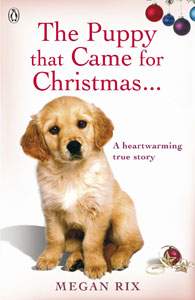This last while, through an odd set of circumstance, I have been working on some early readers. These are not huge books, as you can imagine, but at times my head has gone into a whirl.
Some of the whirl came about because the whole process was affected by the usual summer holiday pause (editors and consultants) and then by my own time away,/ While there were long peaceful periods when nothing happened, there were others when suddenly a lot was happening.
Managing the various projects (while a few other Life things were going) was quite a frantic experience.
I had to make Lists and Charts and use coloured Sticky Notes because there seemed to be so different stages (or, in reality, the usual number of stages) to get through.
Therefore. now things are calmer - and yes, because I have an ABBA post to do* - I thought I'd write a list of what was involved.
First of all there had been
My own research as to how the series itself was developing.
General mulling and moaning until I got an idea into my head.
Plus some background research to make sure my idea worked, was valid.
None of these steps counted as "external" activity.
But then, in real life, came the following steps:
1. Submit synopsis + art work suggestions ( and wait for response).
2. Create draft text and adaptations of my own artwork suggestions (and wait for. . .)
3. Revise text (etc) after consultants suggestions (and wait for . .)
4. Revised, revised text (etc) with editorial/consultant comments. . . .
5. Illustrator choice arrives for polite approval ( though the choice has always been ideal)
6. Cover roughs arrive for comments and (tactful) suggestions..
7. Artwork and text roughs arrive for checking and (tactful) comments.
8. Cover proofs arrive for comments
9. Colour proofs arrive for approval and as a courtesy
10. Contracts, since these aren't being handled by an agent, anytime within this process
11. Invoices, ditto.
12. And, presented as Item 12, various emails connected with all of these.
And all of this times the number of titles that I'm working on.
I haven't noted down all these familiar steps for pity or for a sniffy "so what?"
I noted them down because, while I was struggling to keep on top of my rather small overlapping batch here, I began imagining how it might feel for all those at the other end of this busy book process.
By which I mean that I started thinking of all the editors who - usually women, often part-time, often on variable contracts - do the work of managing all these aspects of the Book Process.
And they do this not for one person but for all the different titles and authors and illustrators they are dealing with at the same time too. (Not to mention the non-glamorous in-house meetings and admin and similar things they have to manage and of which I am blessedly unaware.)
Sometimes things do go wrong for writers. Sometimes editors aren't all we hope - which no doubt works the other way round too. Sometimes, now, as writers we can complete all the process for ourselves.
However, at a time like today , sometimes one just pauses and send some quiet thoughts towards editors and all those other people who help a long the way.
Thanks. Couldn't do it without you.
Penny Dolan
@pennydolan1
*I have been watching this date coming towards me and wondering what words i could even bear to use to write about it. And I don't mean Halloween.













